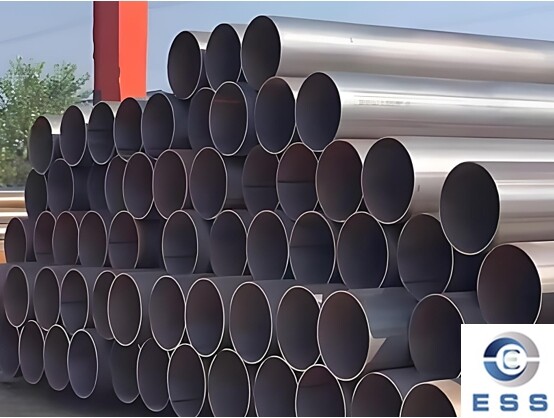
Yes, gas pipelines use the mild
steel tube. The following will give you a detailed introduction to why mild
steel tubes are used.
Material of gas pipelines
Gas pipelines are mainly divided into two
types: plastic pipes and steel pipes. Plastic pipes are suitable for certain
low-pressure and short-distance transmission occasions, but their overall
application range is not as wide as that of steel pipes. Steel pipelines are
pipeline systems composed of various heavy steel pipes, connectors, valves,
accessories, etc. Steel pipelines can withstand large internal and external
pressures and adapt to various complex working conditions. After anti-corrosion
treatment, they are suitable for long-distance transmission and harsh
environments. The structural design ensures that the pipeline has good sealing
performance during the transmission process and reduces the risk of leakage. It
is used in many aspects such as urban gas transmission and distribution
stations, regional gas transmission stations, and gas supply stations of
enterprises and institutions.
Advantages and disadvantages of mild
steel tubes
Mild steel tube refers to carbon
steel pipe made of low-carbon steel and usually have a carbon content of
less than 0.3%. Low-carbon steel is a steel with a low carbon content, good
plasticity and toughness. Due to its excellent physical properties and
processing properties, it occupies an important position in industrial
production.
1. Advantages
Strong corrosion resistance: After
anti-corrosion treatment, it can effectively resist the erosion of chemical
media in harsh environments.
Excellent processing performance: Good
cutting and welding performance, easy for secondary processing and on-site
installation.
Cost advantage: Low production cost,
obvious economic benefits, suitable for large-scale application.
2. Disadvantages and countermeasures
Rust problem: Local corrosion may occur
after long-term use, and regular inspection and maintenance are required.
Hydrogen embrittlement risk: Hydrogen
embrittlement may occur under certain conditions. It is recommended to adopt
protective measures and strengthen daily monitoring during use.
Why do gas pipelines use mild steel
tubes
Gas pipelines need to meet the
characteristics of strong pressure resistance, corrosion resistance, and good
sealing. Mild steel tubes are a type of pipe with high strength and good
corrosion resistance. In the construction of gas pipelines, mild steel tubes
are one of the most commonly used pipes. Why do gas pipelines use mild steel
tubes?
1. Strong pressure resistance
Gas pipelines need to withstand internal
and external high pressure for a long time. The high strength of mild steel
tubes can effectively ensure the safety of the pipeline.
2. Corrosion resistance
Mild steel tubes have good corrosion
resistance and extend service life under proper protection.
3. Excellent sealing
The manufacturing process of mild steel
tubes ensures that there are no welds or joint defects, reducing the risk of
gas leakage.
4. Good plasticity and weldability
Easy to process and install, and can meet
various on-site construction needs.
5. Economical and practical
Compared with other high-alloy steels, mild
steel tubes have lower costs, but can fully meet performance requirements in
most gas transmission occasions.
Summary
In short, it is a common practice to use
mild steel tubes for gas pipelines, because mild steel tubes have good strength
and corrosion resistance, which can well meet the use requirements of
pipelines. However, since mild steel tubes are prone to rust and hydrogen
embrittlement, it is necessary to pay attention to strengthening maintenance
and care during use.













 Eastern Steel Manufacturing Co.,Ltd not only improve product production and sales services, but also provide additional value-added services. As long as you need, we can complete your specific needs together.
Eastern Steel Manufacturing Co.,Ltd not only improve product production and sales services, but also provide additional value-added services. As long as you need, we can complete your specific needs together.










